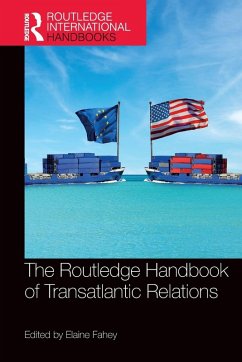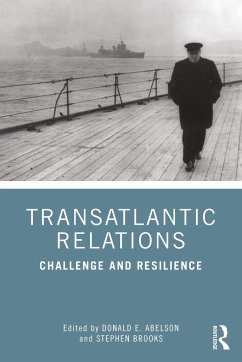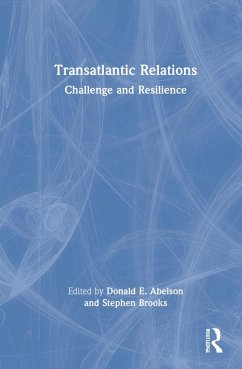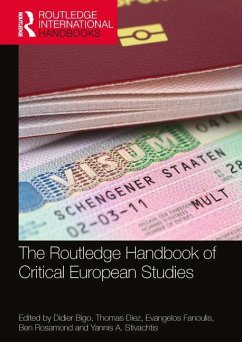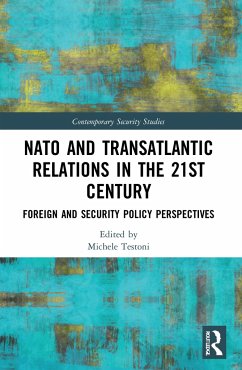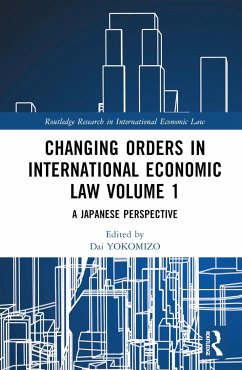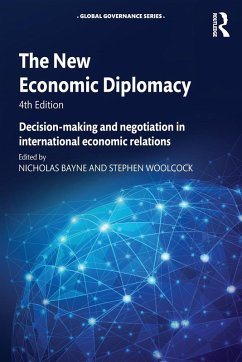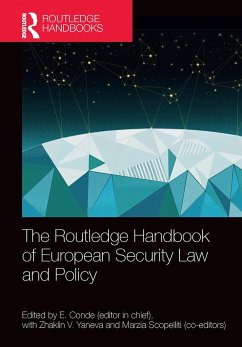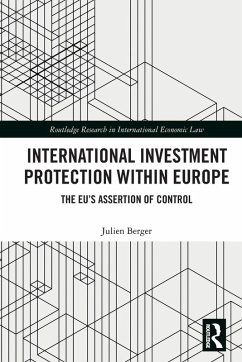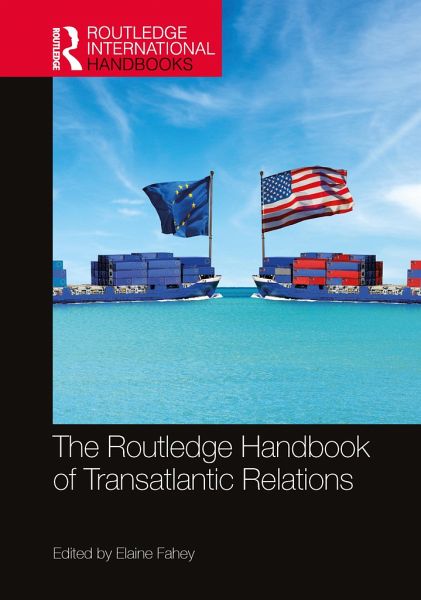
The Routledge Handbook of Transatlantic Relations
Versandkostenfrei!
Versandfertig in 6-10 Tagen
234,99 €
inkl. MwSt.

PAYBACK Punkte
117 °P sammeln!
The Routledge Handbook of Transatlantic Relations is an essential and comprehensive reference for the regulation of transatlantic relations across a range of subjects, bringing together contributions from scholars, policy makers, lawyers and political scientists. Future oriented in a range of fields, it probes the key technical, procedural and policy issues for the US of dealing with, negotiating, engaging and law-making with the EU, taking a broad interdisciplinary perspective including international relations, politics, political economic and law, EU external relations law and international ...
The Routledge Handbook of Transatlantic Relations is an essential and comprehensive reference for the regulation of transatlantic relations across a range of subjects, bringing together contributions from scholars, policy makers, lawyers and political scientists. Future oriented in a range of fields, it probes the key technical, procedural and policy issues for the US of dealing with, negotiating, engaging and law-making with the EU, taking a broad interdisciplinary perspective including international relations, politics, political economic and law, EU external relations law and international law and assesses the external consequences of transatlantic relations in a systematic and comprehensive fashion.
The transatlantic relationship constitutes one of the most established and far-reaching democratic alliances globally, and which has propelled multilateralism, trade regulation and the EU-US relationship in global challenges. The different contributions will propose solutions to overcome these problems and help us understand the shifting transatlantic agenda in diverse areas from human rights, to trade, and security, and the capacity of the transatlantic relationship to set new international agendas, standards and rules.
The Routledge Handbook of Transatlantic Relations will be a key reference for scholars, students and practitioners of Transatlantic Relations/EU-US relations, EU External Relations law, EU rule-making, EU Security law and more broadly to global governance, International law, international political economy and international relations.
The transatlantic relationship constitutes one of the most established and far-reaching democratic alliances globally, and which has propelled multilateralism, trade regulation and the EU-US relationship in global challenges. The different contributions will propose solutions to overcome these problems and help us understand the shifting transatlantic agenda in diverse areas from human rights, to trade, and security, and the capacity of the transatlantic relationship to set new international agendas, standards and rules.
The Routledge Handbook of Transatlantic Relations will be a key reference for scholars, students and practitioners of Transatlantic Relations/EU-US relations, EU External Relations law, EU rule-making, EU Security law and more broadly to global governance, International law, international political economy and international relations.



